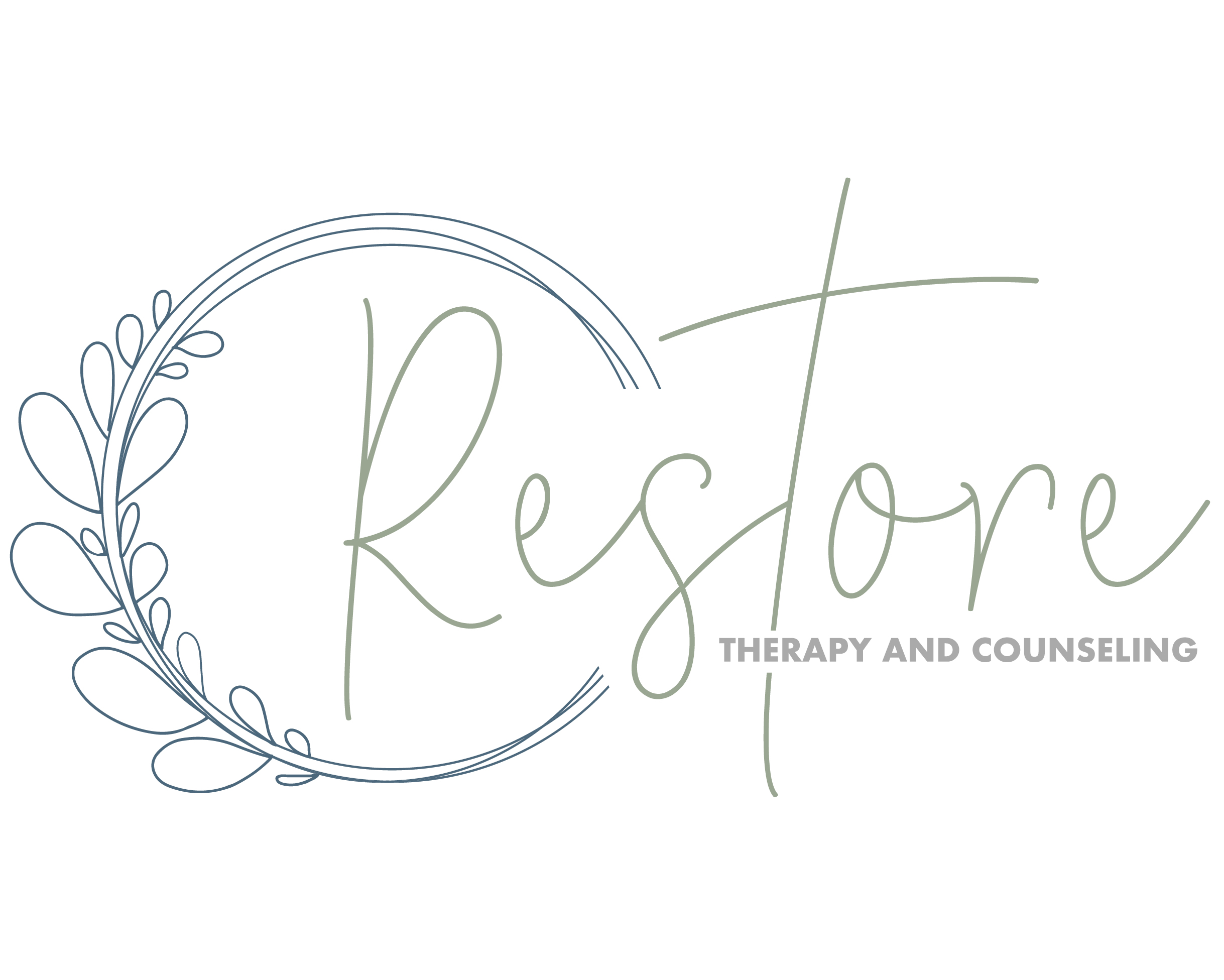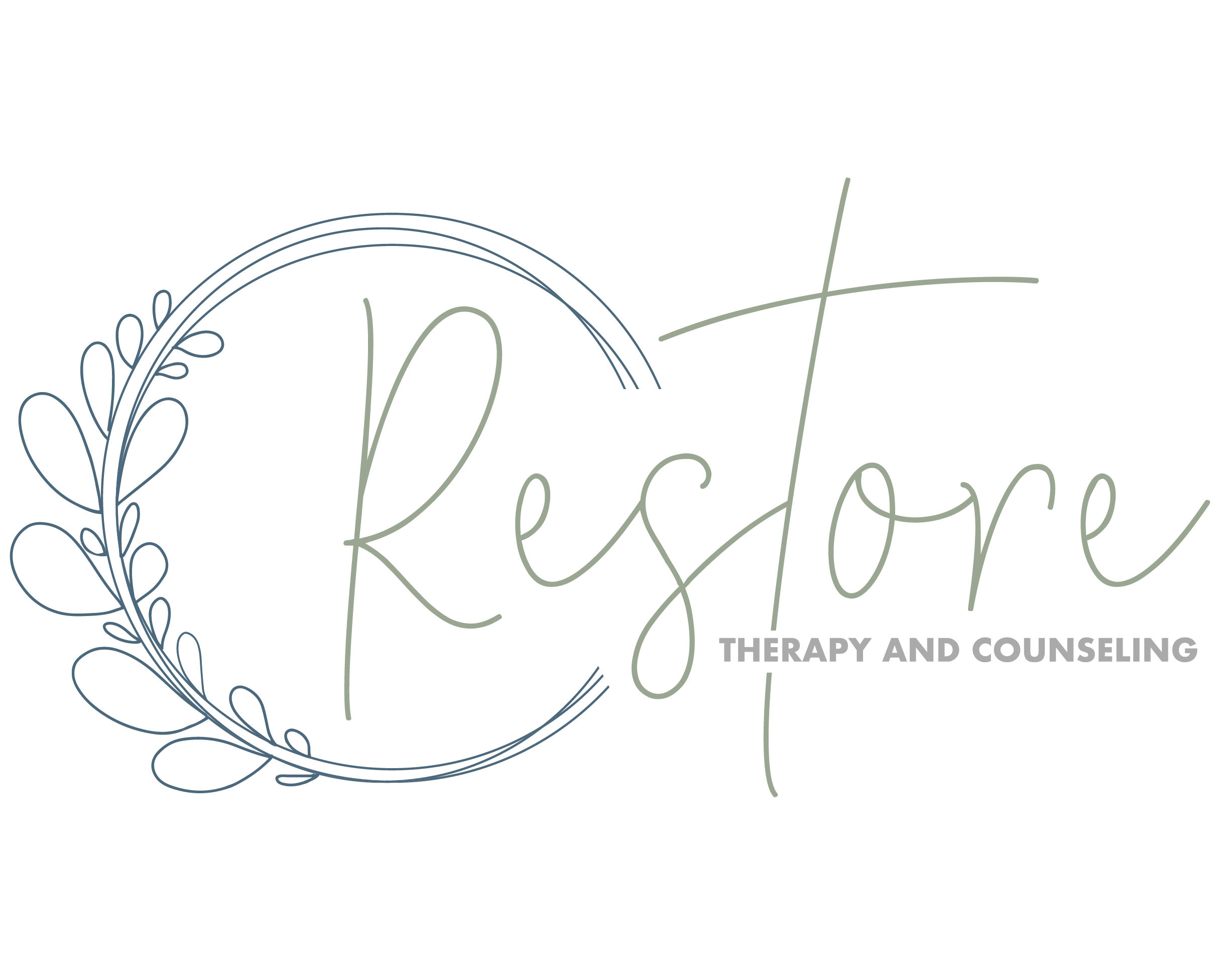What We Treat
- Depression
- Anxiety
- Trauma
- Attachment
- Parent/Child Relationship
- Grief & Loss
- Infertility
- Adoption
- Eating Disorders
- Family Work
- ADHD
- Behavior Modifications
- Stress Management
- Marital Issues
Therapies We Use
We are trained in several evidenced-based therapy modalities and work with the client on their treatment plan to include the therapy intervention that is best for them. Below is information about some of the interventions we provide.
Accelerated Resolution Therapy (ART):
Accelerated Resolution Therapy is a type of psychotherapy designed to provide rapid relief from trauma, anxiety, depression, and other stress-related conditions. It involves techniques such as memory reconsolidation and smooth-pursuit eye movements, which help clients reprocess distressing memories and emotions, often within 1 to 5 sessions. ART is unique in that it allows clients to replace negative images associated with their trauma with positive ones, facilitating a more effective healing process. Research indicates that ART is an evidence-based method that can lead to significant improvements in mental health.
Behavior Modification:
Behavior modification therapy for children involves using techniques to encourage desirable behaviors and reduce unwanted ones. Key techniques include:
-Positive Reinforcement: Rewarding children when they display good behavior to encourage repetition of that behavior.
-Token Economy: Using tokens as rewards that can be exchanged for privileges or treats.
-Behavior Contracts: Setting clear expectations and consequences for behavior, which can help children understand the outcomes of their actions.
-Modeling: Demonstrating desired behaviors for children to imitate.
These techniques can be effective in helping children develop self-control and improve their behavior in various settings. We have seen behavior modification be a helpful tool for behavior management in the lives of kids and their parents.
Cognitive Behavioral Therapy (CBT):
Cognitive Behavioral Therapy is an evidence-based practice that focuses on modifying dysfunctional emotions, behaviors, and thoughts by interrogating and uprooting negative or irrational beliefs. CBT rests on the idea that thoughts and perceptions influence behavior. CBT aims to identify harmful thoughts, assess whether they are an accurate depiction of reality, and, if they are not, employ strategies to challenge and overcome them.
Dialectical Behavioral Therapy (DBT):
Dialectical Behavioral Therapy is a broad-based cognitive-behavioral treatment developed specifically for borderline personality disorder, but is also beneficial for anyone who struggles with emotion regulation. Psychosocial skills training is a large portion of the treatment, and DBT includes skills training within mindfulness. Interpersonal effectiveness, emotion regulation, and distress tolerance are skills taught to promote and reframe dysfunctional behaviors to a more functional way of coping and problem-solving.
Emotion Focused Therapy (EFT):
Emotionally focused couples therapy is a short-term, structured approach to psychotherapy. Its goal is to create a more secure emotional attachment between partners. EFT has been demonstrated as helpful for couples with a variety of problems, including post-traumatic stress disorder (PTSD), depression, frequent arguments, a history of infidelity, and chronic health conditions. EFT can be a powerful tool in couples’ therapy to restore relationships.
Eye Movement Desensitization and Reprocessing (EMDR):
Eye Movement Desensitization and Reprocessing is an evidence-based trauma therapy that focuses on unprocessed memories that contain negative emotions, sensations and beliefs. This therapy is done with minimal re-telling of the trauma with the goal of reducing stress levels and improving quality of life.
Parent Child Interaction Therapy (PCIT):
Parent Child Interaction Therapy is an evidence-based intervention used to reduce disruptive behavior in children ages 2-7. PCIT works with parents and children together to promote a positive parent-child relationship while decreasing the child’s behavior problems.
Theraplay:
Therapy is an intervention that aims to enhance attachment, self-esteem and trust in others for children with behavioral, emotional or developmental difficulties. The intervention, founded on attachment theory, harnesses natural and playful interactions between caregivers and children to develop healthy and positive relationships.

